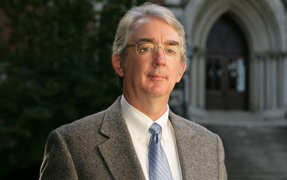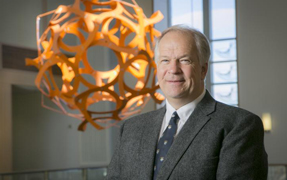Robert Alfano on the supercontinuum: history and future applications
Supercontinuum generation has already found uses in chemistry and biology, but its discoverer says what's on the horizon is even more exciting.
Robert Alfano is a Distinguished Professor of Science and Engineering at the City College of CUNY, where he has been a faculty member in the Department of Physics since 1972. Prior to joining the City College, Dr. Alfano was a Research Physicist at GTE Research Laboratories, 1964-1972. He received his Ph.D. in Physics from New York University in 1972, and his Bachelor's and Master's in Physics from Fairleigh Dickinson University in 1963 and 1964, respectively. He is director of CCNY's Institute of Ultrafast Spectroscopy and Lasers.
Alfano has been involved in developing ultrafast laser spectroscopic techniques and applications of these techniques to study ultrafast dynamical processes in physical, chemical, and biological systems. His research encompasses the study and development of supercontinuum, tunable solid-state lasers, nonlinear optical processes, application of optical spectroscopic techniques for medical diagnosis (optical biopsy), study of photon migration in turbid media, and development of optical imaging techniques for biomedical imaging (optical mammography). He has published more than 700 papers and holds 102 patents. He is the recipient of the Charles Hard Townes Award (2008) from the Optical Society, the SPIE Britton Chance Biomedical Optics Award (2012), and the American Physical Society's Arthur L. Schawlow Prize in Laser Science (2013).
He has chaired 30 conferences for SPIE, including all 13 years (through 2015) of the Optical Biopsy conference at the annual Biomedical Optics Symposium, a part of SPIE Photonics West.



